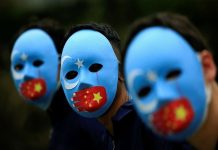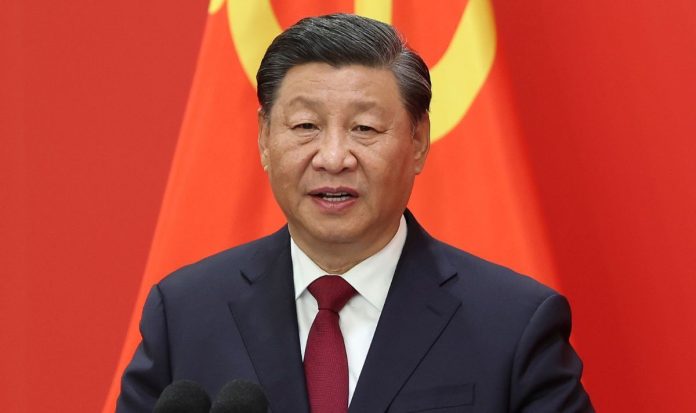Chinese leader Xi Jinping is continuing to purge his country’s military leadership, according to a report on the state of China’s elite politics published by Taipei last week.
The purge notably targeted Li Shangfu, China’s former defense minister, who was officially removed from his post last month by the Chinese legislature.
“Xi Jinping launched a new wave of military purges. Many high-ranking generals from the Equipment Development Department of the Central Military Commission and the [People’s Liberation Army] Rocket Force were arrested,” said the report by Taiwan’s China policy-making Mainland Affairs Council said.
The developments come at a time of heightened tensions in the Asia-Pacific, with China’s military maneuvers being closely monitored by several regional powers.
Since earlier this year, Beijing’s upper echelons have been deepening their crackdown on corruption and misconduct.
The shakeup atop the Rocket Force, which oversees China’s conventional and nuclear weapons, happened in July. A commander and a political commissar were replaced, and they were among three current or former officers placed under investigation for disciplinary violations.
Although not part of the military establishment, China’s former foreign minister, Qin Gang, was also ejected from the State Council—the rough equivalent to a government cabinet—months after he vanished from public view.
In early November, a top disciplinary official in Beijing published a journal article that suggested Qin, China’s former top diplomat in Washington, D.C., may have been compromised.
The shakeup atop the Rocket Force, which oversees China’s conventional and nuclear weapons, happened in July. A commander and a political commissar were replaced, and they were among three current or former officers placed under investigation for disciplinary violations.
Although not part of the military establishment, China’s former foreign minister, Qin Gang, was also ejected from the State Council—the rough equivalent to a government cabinet—months after he vanished from public view.
In early November, a top disciplinary official in Beijing published a journal article that suggested Qin, China’s former top diplomat in Washington, D.C., may have been compromised.
Xi’s decisive actions have resulted in a significant shift in the power dynamics within the PLA, according to the Taiwan government report, hinting at speculation that the moves could lead to instability within its ranks.
But the implications for China’s foreign relations and for regional and international security remained unclear.
In the Taiwan Strait, Beijing has been trying different tactics with the aim of coercing Taipei, the report said.
“A comprehensive analysis of the characteristics of the recent PLA exercises and training showed the strategy of ‘sealing and controlling’ the Taiwan Strait and ‘denying’ intervention by the U.S. and Japan remained the main focus,” the council said.
China’s military continued to simulate strikes on U.S. aircraft carrier groups as part of its training, Taipei said. It added that the status of military-to-military dialogue between the U.S. and China would greatly affect stability in the bilateral relationship.
The rumored accident of a Chinese navy nuclear submarine revealed further weaknesses in Beijing’s forces, according to the report. The incident poses challenges to Xi’s goal of modernizing the country’s military, especially when training for actual combat, it said.

































